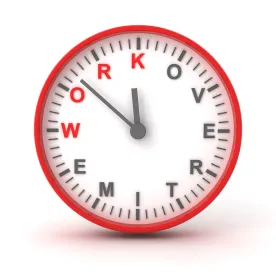The U.S. Department of Labor proposed Thursday to formally withdraw controversial Obama Era overtime regulations and replace them with a far more modest version.
The new proposed regulations would raise the threshold salary level for the so-called “white collar” exemptions under the Fair Labor Standards Act from $23,660 a year ($455 a week), where it was set in 2004, to $35,308 a year ($679 a week). It also would raise the annual compensation required to qualify for a “highly compensated employee” exemption from $100,000 to $147,414.
The DOL’s first shot at raising the salary levels, which would have more than doubled the pay required for most overtime exemptions to $47,476 a year ($913 a week), was blocked by a federal court in Texas shortly before its December, 2016 effective date. The Texas court held that the DOL had “ignored Congress’ intent by raising the minimum salary level such that it supplants the [FLSA’s job] duties tests.”
The DOL appealed the ruling, but asked the appellate court to hold the case in abeyance while it reconsidered its proposal. Since then, the DOL has solicited additional public comments and held “listening sessions” in five cities to “gather views on white collar exemption regulations.”
In Thursday’s proposal, the DOL wrote that it now believes that increasing the standard salary level to $913 per week would have been “inappropriate,” because it would have created “significant tension” with the statutory text and “untethered the salary level test from its historical justification: setting a dividing line between nonexempt and potentially exempt employees by screening out from exemption a swath of employees who are unlikely to be bona fide executives, administrators, or professionals because of their compensation level.”
The new proposal also strikes the automatic update provision that was contained in the 2016 regulations in favor of a commitment by the DOL to consider adjusting the salary levels once every four years in the future, but only after providing notice and seeking public comment. The DOL wrote that it “may forestall proposing updates if economic or other factors so indicate.”
Like the 2016 regulations, the new proposal would allow employers to use nondiscretionary bonuses and incentive payments, such as productivity and profitability bonuses, and commissions, to satisfy up to 10 percent of the required salary level for white collar exemptions. The rules contain a catch-up provision that will allow employers to bring employees up to the required salary level for the year if their bonuses or commissions are lower than expected.
The predicted reach of the proposed regulations is significantly narrower than that anticipated before the 2016 regulations. The DOL predicted that about 4.2 million exempt employees would have become non-exempt under the 2016 regulations “without some intervening action by their employers.” The DOL predicts that the new proposed regulations would make only 1.1 million workers eligible for overtime.
The new rules will be open for public comment for 60 days. Comments can be submitted electronically at https://www.regulations.gov. Once the comment period has closed, the DOL will review comments and then issue a final rule, which probably will become effective in early 2020.




 />i
/>i
